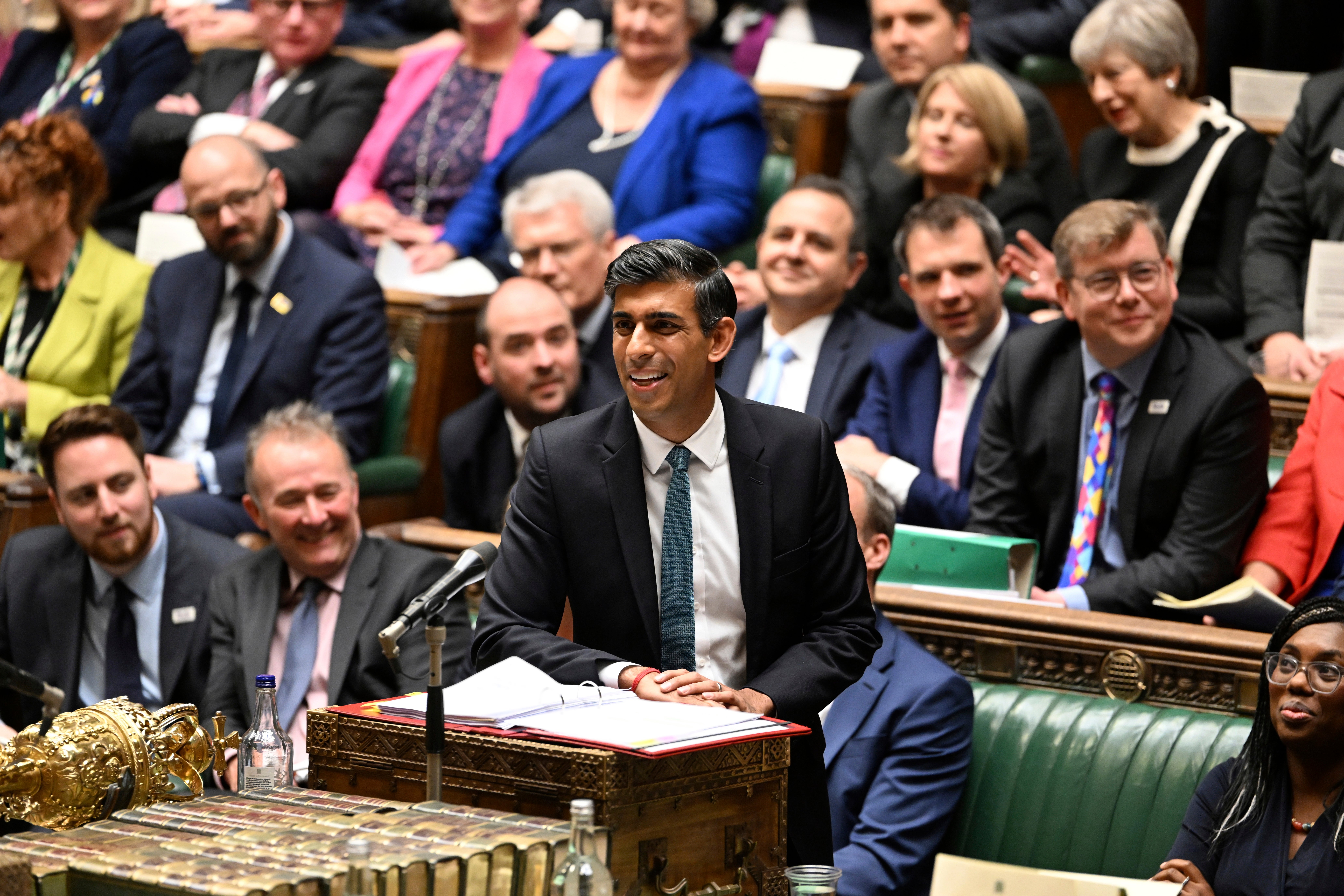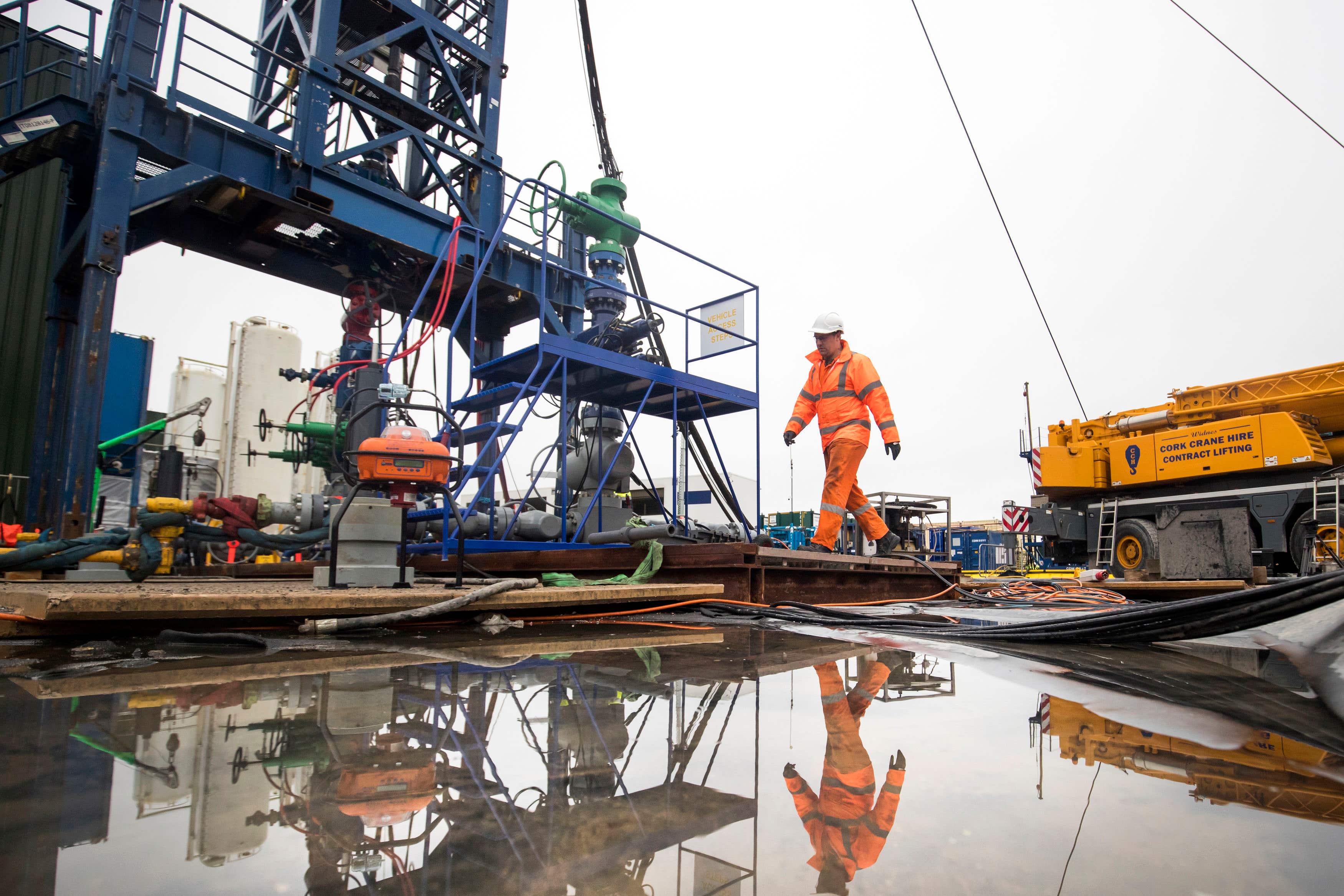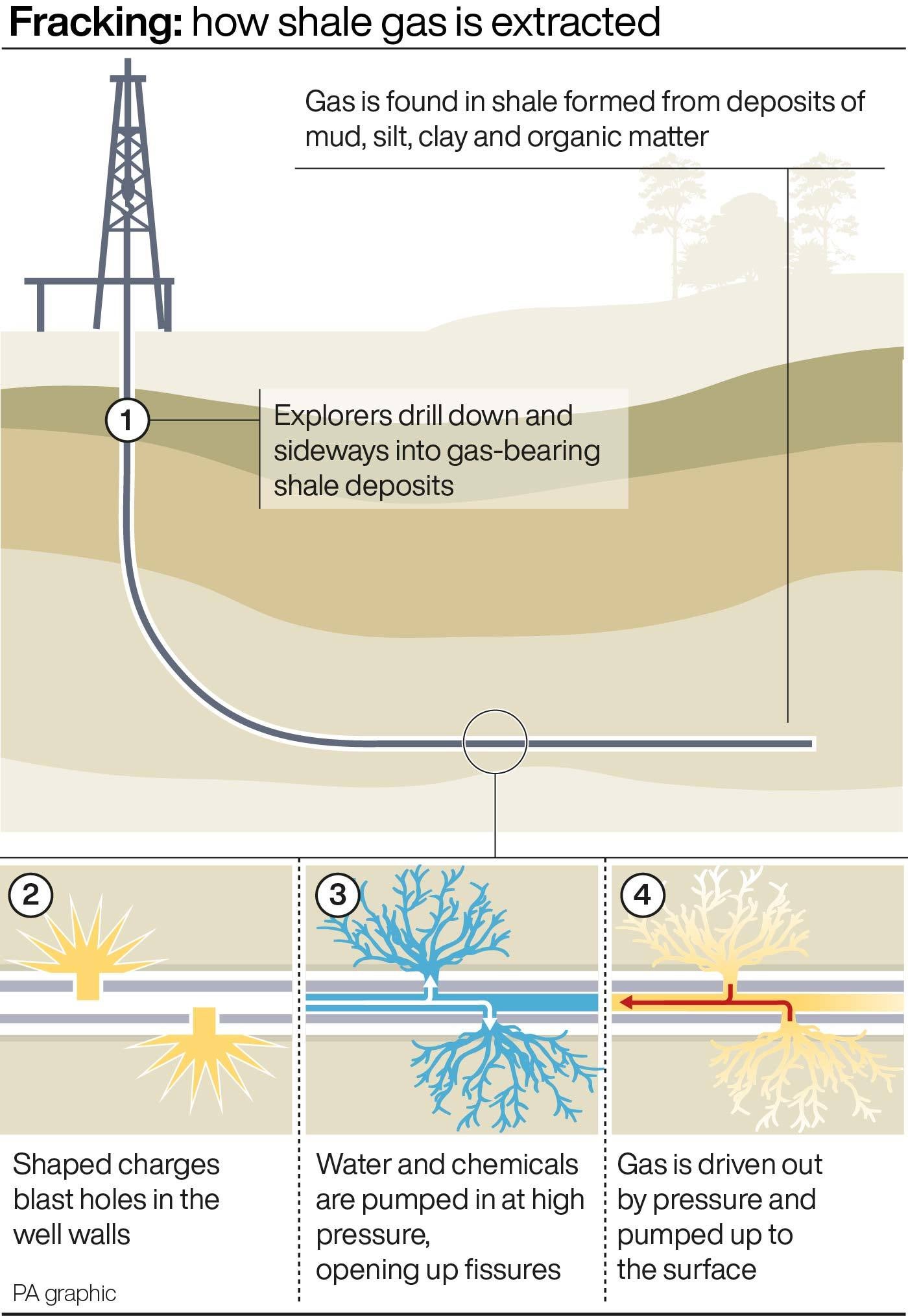UK government fracking U-turn ‘sets a good tone’, say climate activists
Reversal comes as MPs warn national security is being jeopardised by climate-fuelled extreme weather

The ban on shale gas fracking will be reinstated, the prime minister told MPs on Wednesday, in a U-turn on a policy launched by Liz Truss’s short-lived government.
Rishi Sunak said during Prime Minister’s Questions that he stands by the 2019 Conservative Party manifesto, which banned fracking unless the science shows “categorically” that it can be done safely.
Green groups, conservationists and climate activists described the return of the ban as an “incredibly positive” result on the prime minister’s first full day in office.
“It’s setting a good tone,” said Helena Bennett, head of climate policy at the environmental think tank Green Alliance.
“We’re really hoping that he will accelerate the transition, restore the natural environment, and make sure we’re doing things like insulating homes properly.”
Ms Truss lifted the ban on fracking, despite a report warning that forecasting drilling-induced earthquakes remained “a scientific challenge”.
A vote on the issue earlier this month contributed to her downfall as prime minister.
The show of cautious optimism from environmentalists comes as a parliamentary inquiry warns that Britain’s national security is being jeopardised by the failure to prepare for extreme weather events caused by the climate crisis.
The joint committee on the national security strategy said the UK’s critical national infrastructure has been left vulnerable due to an “extreme weakness” at the heart of government.
Nevertheless, as the UK prepares for Cop27, environmentalists said Wednesday’s fracking decision represented a “good start” to Mr Sunak’s time in office.

Fracking is the extraction of shale gas by breaking rocks with a mixture of water, sand and chemicals at high pressure.
The first onshore licences were awarded for shale gas exploration in 2008 and led to three test wells being explored near Blackpool.
All three operations were accompanied by earthquakes and led to two suspensions of fracking – the first in 2011 and the second in 2019.
Stuart Haszeldine, a professor in the school of geosciences at the University of Edinburgh, said the decision to ban fracking again “honours” the scientific evidence, and fracking’s track record of failure in the UK.
“There has been no advance in the science of predicting these earthquakes, so the decision to maintain that fracking ban is correct,” he said.

“For the lots of political pain that lifting the fracking moratorium would generate, you get very little gas, very little energy security benefit,” said Sam Hall, director of the Conservative Environment Network. “I therefore think it’s right that the government chose not to pursue fracking again.”
Ed Matthew, campaigns director at E3G, an independent think tank that aims to accelerate a global transition to a low-carbon future, said simply that the U-turn had been “inevitable”.
“Conservative MPs knew that continued government support for fracking would be punished mercilessly at the ballot box,” he said.
But not everyone is happy.
The UK Onshore Oil and Gas industry body said they were stunned by what amounted to an “illogical U-turn” in the middle of an energy crisis.
“If reports are accurate, then a decision has been made to lock the UK into reliance on imported gas for decades,” Charles McAllister, director of policy at the body, said.

Environmentalists hope, however, that this is just the first domino to fall.
Craig Bennett, chief executive of The Wildlife Trusts, said Mr Sunak had made “a good start” but added that he must now rip up the Retained EU Law Bill.
The bill puts 570 pieces of environmental legislation at risk, in areas such as habitat protection, water quality and sewage pollution, he said.
Mr Bennett also urged the government to halt investment zones which “threaten a ‘race to the bottom’ on environmental regulations between different regions”. There are also questions over agricultural reforms proposed by the Truss government.
While climate activists also point to the doubling down on oil and gas production in the North Sea, and a lack of funding to better insulate UK homes.
“The renewed ban on fracking is good news,” said Richard Benwell, the CEO of the Wildlife and Countryside Link.
“We will look for similar sense in the approach to new fossil fuel supplies in the North Sea – they should stay in the ground – and in the nature-friendly deployment of renewables and energy efficiency measures.”
A government spokesperson said: “There are robust systems in place to protect critical national infrastructure from the effects of climate change.”





Join our commenting forum
Join thought-provoking conversations, follow other Independent readers and see their replies
Comments